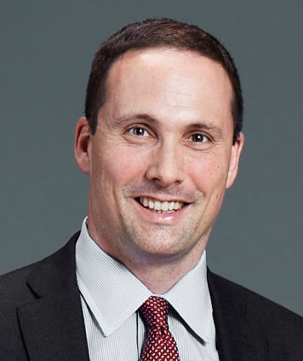In Cardiology Patients, there's Old, Older, and Oldest, and that Distinction Matters
Despite demographic shifts that are steadily increasing how long people are living,most medical research lumps everyone over 65 (or even over 60) into the same group. That's about to change, say's NYU's John A. Dodson, MD, MPH.

When physicians talk about the old these days, they have to distinguish.
There’s the “young old” people 65 to 75, the “middle old” people over 76 to 85, then the “oldest old” or those over 85, notes John A. Dodson, MD, MPH, (photo) assistant professor, Departments of Medicine, Leon H. Charney Division of Cardiology and Population Health at NYU Langone Medical Center.
But despite demographic shifts that are steadily increasing all three categories, most medical research lumps everyone over 65 (or even over 60) into the same group, Dodson said.
In research to be presented at the American College of Cardiology’s 65th Scientific Session & Expo in Chicago, IL, Dodson is a co-author of two studies on these oldest patients, work focused on cardiology.
“The oldest of the old are different from the merely old,” he said. They have different health problems, different risks, and yet there is little research on just what those differences are.
Both papers are part of the SILVER AMI study, an ongoing National Institutes of Health four-year study of care of the most senior Americans.
One study focuses on sex differences in patients admitted to the hospital after an acute myocardial infarction.
With lead author Michael Nanna and colleagues at Yale University School of Medicine, New Haven, CT, Dodson found that compared with men, older women with AMI have “more geriatric impairments, with similar medications administered but lower rates of revascularization.”
The other study, with lead author Aakriti Gupta and colleagues at Yale and NYU, Dodson found that despite having similar AMI characteristic, “the oldest-old have consistently higher rates of geriatric impairments and lower rates of common treatments” and that these important age-related differences may be obscured when “old” patients are treated as a single group.
Analyzing data from 1,500 patients 75 years old or older enrolled in the SILVER-AMI study at 80 US hospitals, they found that the oldest old patients tended to be female, white, and not obese. They had more kidney disease than men, tended to live alone (often as widows).
“What Dr. Gupta found is that women were more likely than men to have cognitive impairment, vision problems, and weakness,” he said.
In the study led by Nanna, the researchers looked at the prevalence of impairments in older patients and then looked at the treatments in these patients with STEMI and non-STEMI attacks.
They found men were more likely to get revascularization procedures.
When patients 85 or older had a serious STEMI heart attack, both sexes were treated the same and got interventional procedures. But with less serious non-STEMI attacks, women were less likely to get invasive procedures.
“It comes down to patient preference and clinical judgment,” Dodson said, but cultural factors might also be involved.
Or the difference could be due to anatomical differences that result in a greater risk of complications like bleeding, he said.
“So many things go into it,” he said
The teams are putting together data distinguishing the characteristics of the elderly analyzed by just how old they are, and by sex.
Too often, he said, medical training assumes that what applies to a patient at age 60 will hold true for all patients who are above that age.
That information may not be helpful to a clinician who sees patients in their 90s, he said.
Gathering such data is just beginning, and Dodson expects drug trials on older people will follow.
“Drug companies are going to need that data to reflect patients and doctors in the real world,” he said.
Dodson said he was drawn to gerontology after a fellowship. “It was seeing the challenge of helping these people,” that attracted him, he said.
The study is being led by Sarwat Chaudhry, MD, Associate Professor of Medicine; Principal Investigator, SILVER-AMI Study; Yale School of Medicine and
Mary Geda, RN, MSN, Project Director, SILVER-AMI Study; Yale School of Medicine.